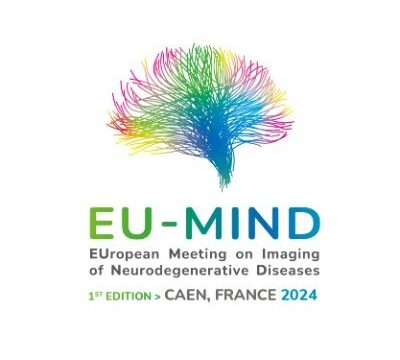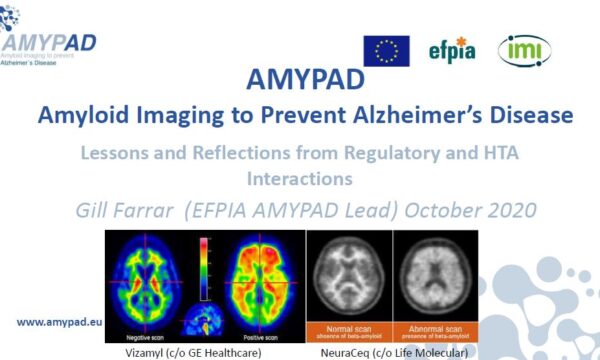The development of the AMYPAD Diagnostic and Patient Management Study (DPMS) protocol was led by WP3 through the joint leadership of Giovanni Frisoni (University of Geneva), Elisa Canzoneri (University of Geneva), Nicola Raffa (Piramal), Rossella Gismondi (Piramal), and Andrew Stephens (Piramal). The submitted protocol is the result of a year-long intense collaboration between academia, industry, Alzheimer Europe, and the European Medicines Agency, which provided detailed advice on the objectives and methodology of the study.
The drafting of the protocol posed great challenges due to the diversity within its participating centers, and it required a team effort to be able to account for important differences across European healthcare systems in the final study design. The final research protocol is a result of true teamwork, with all Principal Investigators and clinicians within the different memory clinics having been involved in the protocol preparation to ensure a seamless integration between the study and the diagnostic routine of the different centers. Special mention goes to Hans Berkhof (VUmc), who was consulted as expert statistician and provided a summary statistical analysis plan; colleagues at IXICO, who provided input on the logistics of data collection and management; as well as members from our EFPIA partners (GE Healthcare and Piramal Imaging) who provided essential support and expertise during the entire process. In addition, the Participant Information Sheet and Informed Consent Form were developed in collaboration with the AMYPAD ethics team from WP6, which provided valuable guidance during this phase. Finally, the AMYPAD DPMS protocol was agreed upon and the study design was locked.
As a result, the AMYPAD DPMS became a multicenter, open-label, Phase 4, randomized study that, in the context of the AMYPAD project, will explore the impact of β-amyloid Positron Emission Tomography (PET) imaging on diagnostic thinking and management of patients subjective cognitive decline [SCD], mild cognitive impairment [MCI], or dementia where Alzheimer’s disease [AD] is in the differential diagnosis. A total of 900 subjects will be included and stratified by syndromic diagnosis (SCD-plus, MCI, or dementia), and then randomly assigned to 1 of 3 groups:
- Early Amyloid PET Arm: Participants in this group will undergo amyloid PET imaging within 4 weeks of the baseline visit. These participants will also undergo a second amyloid PET scan 18 months after the initial scan.
- Late Amyloid PET Arm: Participants in the late arm will undergo amyloid PET imaging only at 8 months (±8 weeks) after baseline.
- Free Choice Arm: In this group, the managing physician can decide if and when the participant undergoes amyloid PET imaging, within a period of 12 months after baseline.
The primary outcome of the study is the difference between Early Amyloid PET ARM and Late Amyloid PET in the proportion of patients for whom the physician reached a very high confidence etiologic diagnosis after 3 months. Secondary endpoints will address not only diagnosis and diagnostic confidence, but also patient management, health resource utilisation and patient-related outcomes, as well as methods for image quantitation.
In August 4th 2017, the study Chief Investigator, Professor Giovanni Frisoni, submitted the first Research Ethics Committee application for the AMYPAD DPMS to the Commission Cantonale d’Ethique de la Recherche Genève (CCER) in Geneva, Switzerland. The study has also been registered in the European Clinical Trial Database (EudraCT) with the following registration number: 2017-002527-21.
The first CCER’s opinion was received in Geneva on September 14th 2017 and after the clarifications and eventual adjustments provided by the researchers, the DPMS protocol was approved in Switzerland at the beginning of January 2018. Final practical and logistics details are being finalized and Geneva will be ready to recruit its first participant very soon, which a highly expected milestone for AMYPAD – stay tuned!



